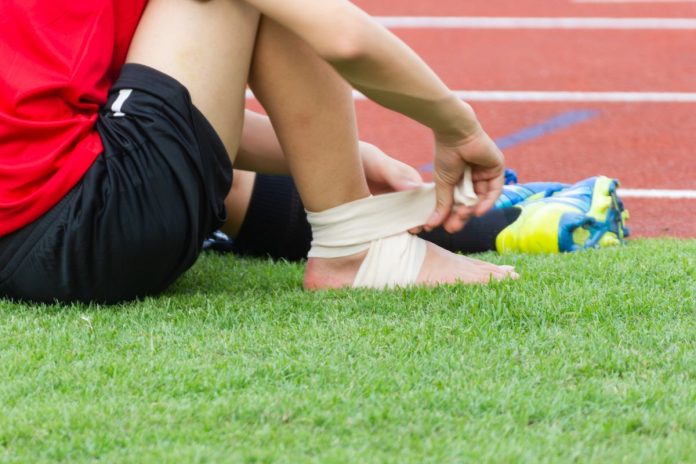When you consider how stressful on the body sports can be, it is no surprise that injuries occur. While some injuries and not preventable, the risk can be minimised, and with that in mind.here are a few common sports injuries along with ways to prevent them.
Here Are Some Common Sports Injuries
- Torn cartilage – Cartilage is a soft but durable material found on the end of bones; they play the role of a shock absorber. Injuries are typically found with ankles, knees and shoulders. If you are suffering with joint pain, make an appointment at your nearest sports clinic and let the resident physio examine the affected area. Prevention includes warming up correctly before play and warming down after the game.
- Tendinitis – Tendinitis is when the tissue that connects ligaments and tendons with muscle and bone becomes inflamed. This can be caused by repeated movement over a long period of time; tennis, badminton and squash players typically suffer with this condition, while swimmers are also prone to shoulder issues due to overuse.
- Sprained ligaments – Stretched ligaments cause a sprain or tear and injuries usually involve wrists, knees and ankles. Wearing shoes with ankle support can help, as does wearing elasticated support; be careful, as you can easily cause a sprain to worsen if you don’t follow the physio’s advice. A common mistake is to start training too early, which can actually worsen the injury; make a single appointment with a physio and he/she can set you a treatment program.
- Hamstring strain – A common injury for athletes, it is very easy to strain your hamstring by stretching your leg too far; soccer and rugby players often pull their hamstring and the best prevention is not to stretch too far when playing. A hamstring injury can take months to heal and you are advised to seek out a physio, a fitness professional who can set out a series of exercises along with instructions. Click here for soccer and rugby information in Brisbane.
- Concussion – A heavy knock on the head can cause concussion; boxers and martial artists are more prone to head injury due to the nature of the sport.
- Dislocated shoulder – Boxers, tennis players and mixed martial artists are at risk of shoulder dislocation; if you should suffer a shoulder injury, make an appointment with your local physio and let the expert examine the injury. X-ray images usually give the physio the information they need to determine the severity of the dislocation; a shoulder can be reset should the arm ‘pop out’ but this should only be done by a certified physio.
- Broken bones – This can happen to anyone at any time and a broken bone usually means wearing a plaster cast. You can break an arm, leg, finger or indeed, any bone in the body. A slight break is called a fracture and both require you to stop training until the cast has been removed, then you can start with recuperation exercises to rebuild the muscles.
Common Causes of Sporting Injuries
Sporting injuries are typically caused by the following:
- Trips and falls – Even those who wear protective gear can easily lose balance or collide with another player.
- Poor preparation, no warm up or warm down – This is critical and it minimises the risk of a torn muscle.
- Lack of safety equipment – If the sport requires protective gear, make sure you use it.
- Wearing poor quality footwear – A common mistake; choose the top brands for sporting footwear and reduce the risk of injury.
- Pushing yourself too hard – When you are trying to beat your PB, this is a risky time as your body is firing on all cylinders at breakneck speed.
If you are new to playing sports, it is easy to pick up a slight injury and if you don’t give yourself adequate recovery time, the problem is worsened and it will take much longer to fully recover. Of course, no one expects you to know everything about your body; seek out a professional opinion from a local physio and you won’t regret it. There are good reasons why pro athletes use physios, as they have been trained to treat a diverse range of injuries.
How to Treat Sporting Injuries
Whether you are a professional athlete or you play for fun, should you suffer an injury, the best solution is to make an appointment with your local physio. The healthcare professional is trained to diagnose sporting injuries and after an initial examination, the physio can create a treatment plan that is specifically designed around you.
The physio has hands-on experience in treating all forms of injury, so relax, as you are in very capable hands.






Thanks for sharing important content